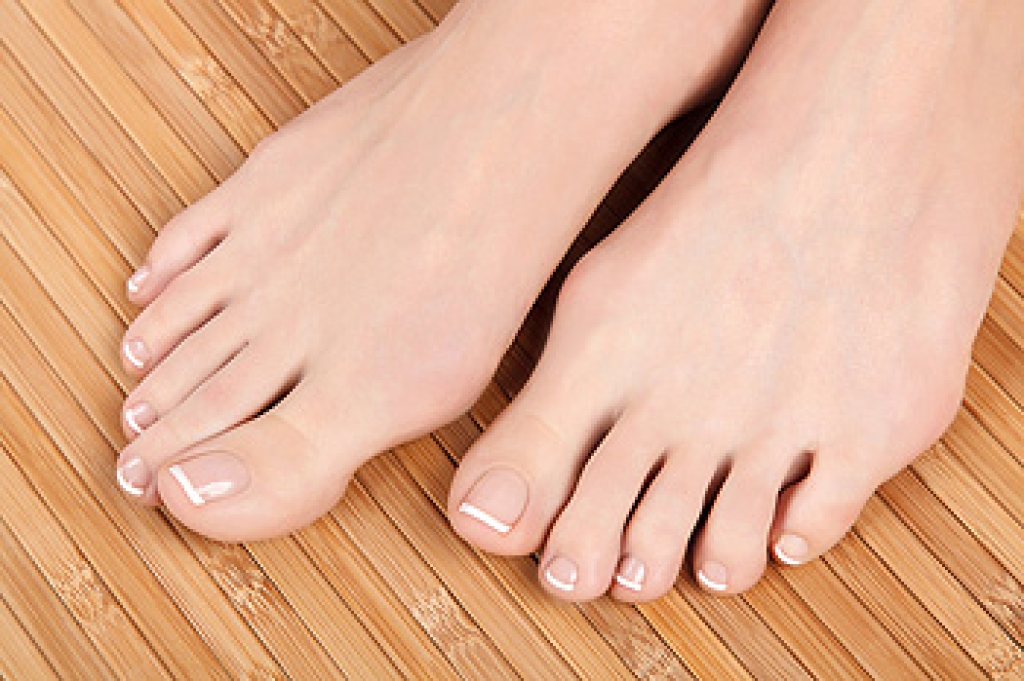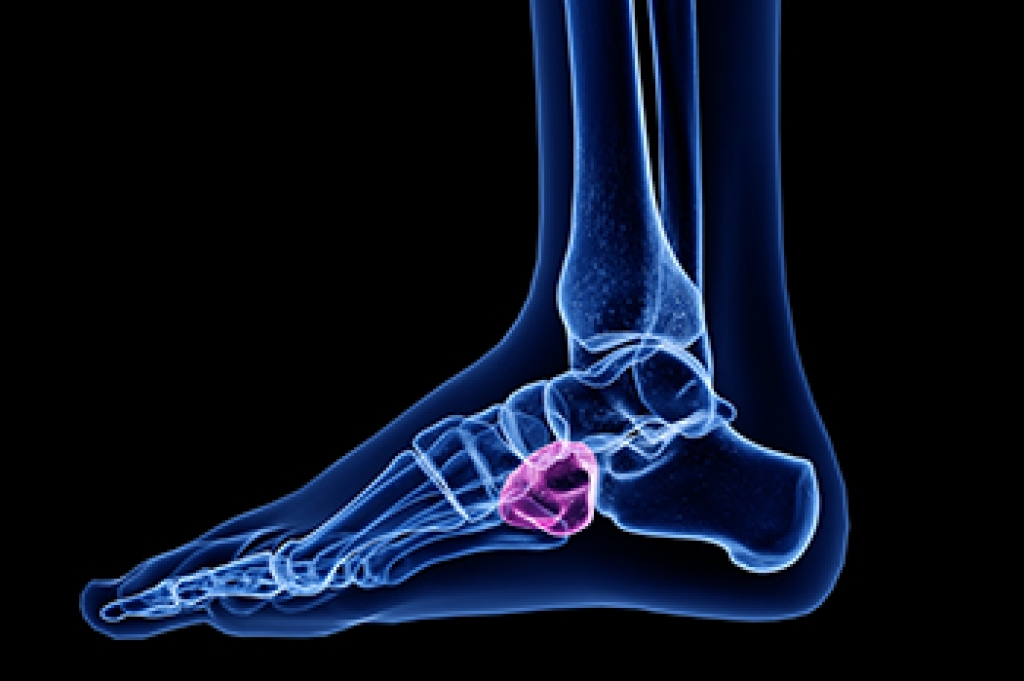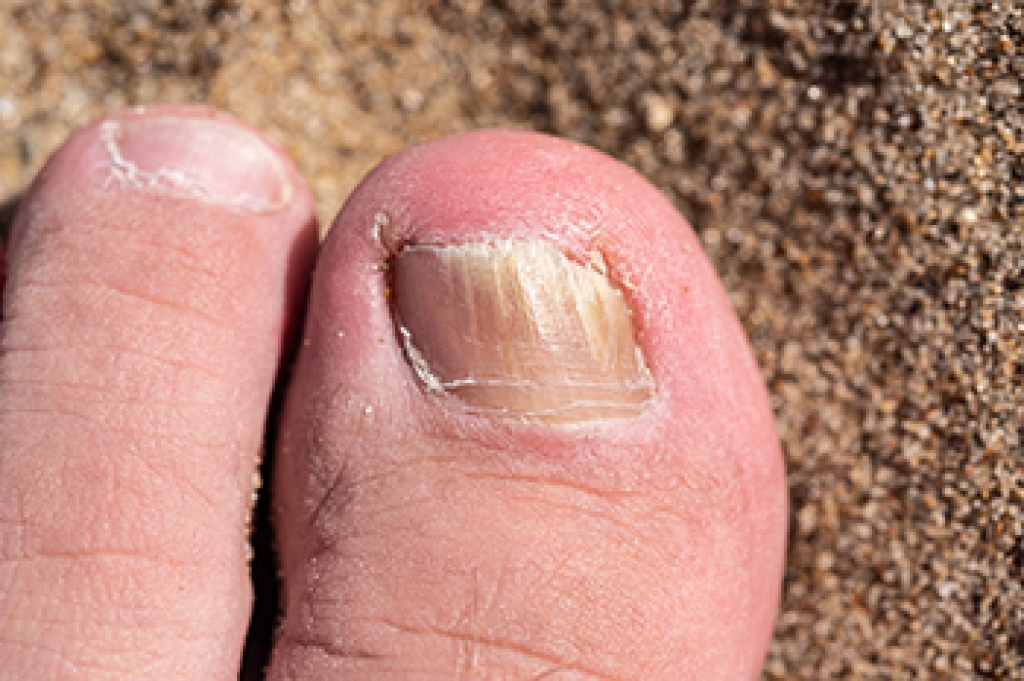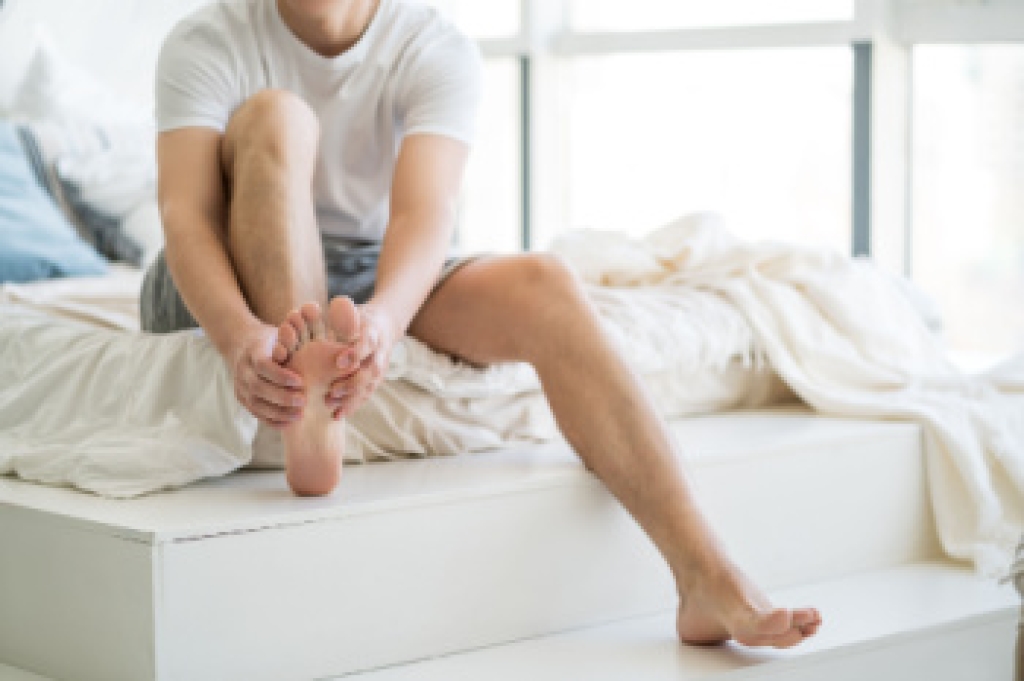 The tibial nerve is a nerve located in the foot. When this nerve endures abnormal pressure, it can cause tarsal tunnel syndrome. Tarsal tunnel syndrome is caused by inflammation surrounding the tarsal tunnel, which is located on the inside of the ankle, and can result in severe pain and discomfort. Tarsal tunnel syndrome can develop for various reasons, including diabetes or a possible tumor on the tarsal tunnel. A common symptom that patients may experience is pain in the sole of the foot. The pain may become worse when walking and standing for extended periods of time, and relief may be found when the affected foot is elevated. If you have pain in your feet, it is strongly suggested that you consult with a podiatrist for a proper diagnosis.
The tibial nerve is a nerve located in the foot. When this nerve endures abnormal pressure, it can cause tarsal tunnel syndrome. Tarsal tunnel syndrome is caused by inflammation surrounding the tarsal tunnel, which is located on the inside of the ankle, and can result in severe pain and discomfort. Tarsal tunnel syndrome can develop for various reasons, including diabetes or a possible tumor on the tarsal tunnel. A common symptom that patients may experience is pain in the sole of the foot. The pain may become worse when walking and standing for extended periods of time, and relief may be found when the affected foot is elevated. If you have pain in your feet, it is strongly suggested that you consult with a podiatrist for a proper diagnosis.
Tarsal tunnel syndrome can be very uncomfortable to live with. If you are experiencing tarsal tunnel syndrome, contact Paul Hutchison, DPM of Hutchison Foot Clinic. Our doctor can provide the care you need to keep you pain-free and on your feet.
Tarsal Tunnel Syndrome
Tarsal tunnel syndrome, which can also be called tibial nerve dysfunction, is an uncommon condition of misfiring peripheral nerves in the foot. The tibial nerve is the peripheral nerve in the leg responsible for sensation and movement of the foot and calf muscles. In tarsal tunnel syndrome, the tibial nerve is damaged, causing problems with movement and feeling in the foot of the affected leg.
Common Cause of Tarsal Tunnel Syndrome
- Involves pressure or an injury, direct pressure on the tibial nerve for an extended period of time, sometimes caused by other body structures close by or near the knee.
- Diseases that damage nerves, including diabetes, may cause tarsal tunnel syndrome.
- At times, tarsal tunnel syndrome can appear without an obvious cause in some cases.
The Effects of Tarsal Tunnel Syndrome
- Different sensations, an afflicted person may experience pain, tingling, burning or other unusual sensations in the foot of the affected leg.
- The foot muscles, toes and ankle become weaker, and curling your toes or flexing your foot can become difficult.
- If condition worsens, infections and ulcers may develop on the foot that is experiencing the syndrome.
A physical exam of the leg can help identify the presence of tarsal tunnel syndrome. Medical tests, such as a nerve biopsy, are also used to diagnose the condition. Patients may receive physical therapy and prescriptive medication. In extreme cases, some may require surgery.
If you have any questions please contact our office located in Memphis, TN . We offer the newest diagnostic and treatment technologies for all your foot and ankle needs.




